If you’re a fan of spicy food, you know that the heat in Peppers can vary greatly. Sometimes you’ll bite into a Pepper, and it’ll be barely noticeable, while other times, it’ll be so hot your mouth is on fire. Pepper plants are some of the most popular vegetables to grow in home gardens and come in various shapes, sizes, and heat levels. But if you’re looking for a real kick, it’s possible to take the heat up a notch and make your Pepper plants even hotter. Let’s check out the best tips for making pepper plants hotter below.
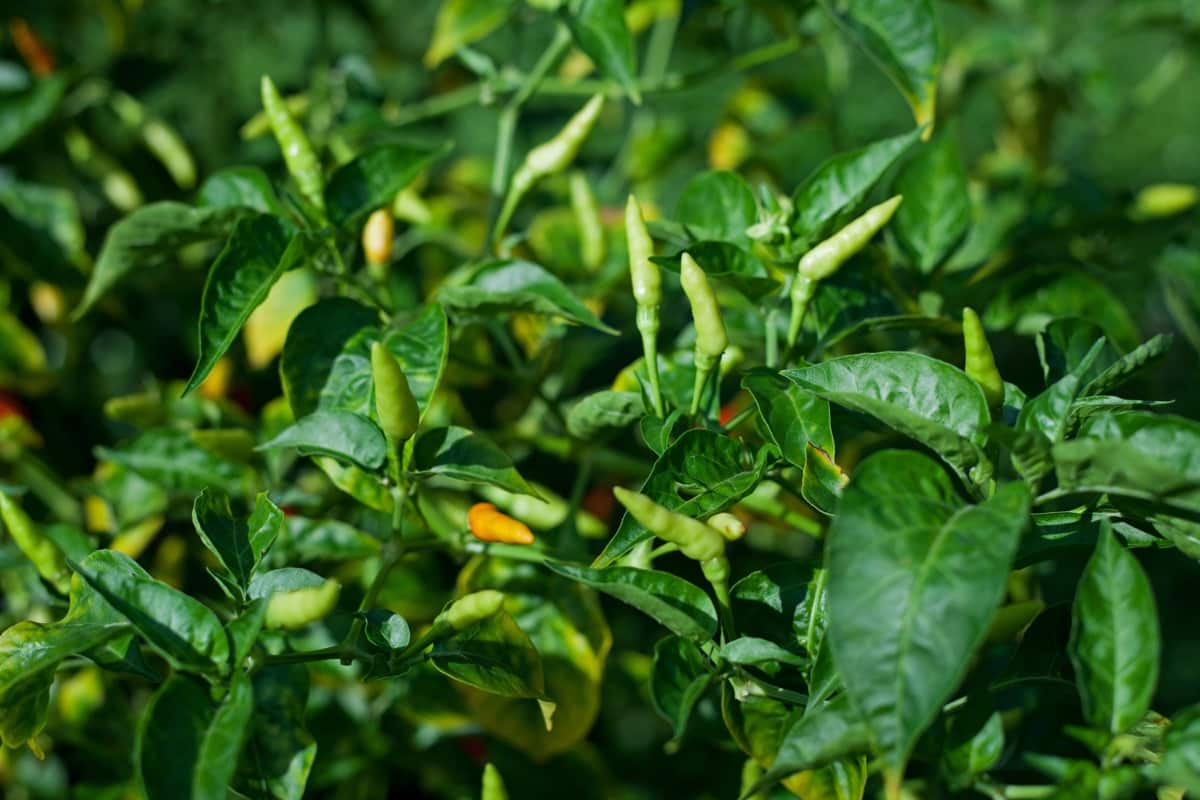
With just simple steps, you can increase the spiciness of your Peppers while still enjoying the same delicious flavors. If you add spice to your life, then growing Pepper plants are a great way to do it. Once you’ve decided on the heat level, research what type of Pepper plant will produce that heat. For example, Jalapeno Peppers are relatively mild, while habanero Peppers are much hotter. Once you’ve narrowed down your choices, consider other factors, such as the size of the plant and the climate in which it will be grown.
Some Peppers need more warmth and sunlight than others to thrive. Pepper plants can be a great addition to any kitchen garden; with the right tips, you can make them even hotter. By choosing the hottest Pepper varieties, adding a bit of extra heat with fertilizer or compost, and allowing your Peppers to ripen fully before harvesting, you can make your Pepper plants as hot as you like.
Best tips for making Pepper plants hotter
Choose the best location for your Pepper plants
When it comes to making your Pepper plants hot, the location of the plants is key. Peppers love warm weather and plenty of sunshine, so choose a spot in your garden that gets six hours of sunlight each day. If you live in a climate where the summers are hot and humid, you might want to consider planting your Peppers in raised beds or on mounds to ensure good drainage. The location of the plant will affect the heat of the Pepper.
If you want a hot Pepper, you should plant it in a sunny location. If you live in an area with hot summers, you can plant your Peppers in partial shade. They will still produce fruit, but the flavor will be milder. When making your Pepper plants hotter, you have a few different options. You can grow Peppers in hot conditions or use methods to make the conditions hot yourself.
In case you missed it: Best and Worst Companion Plants for Peppers – A Full Guide
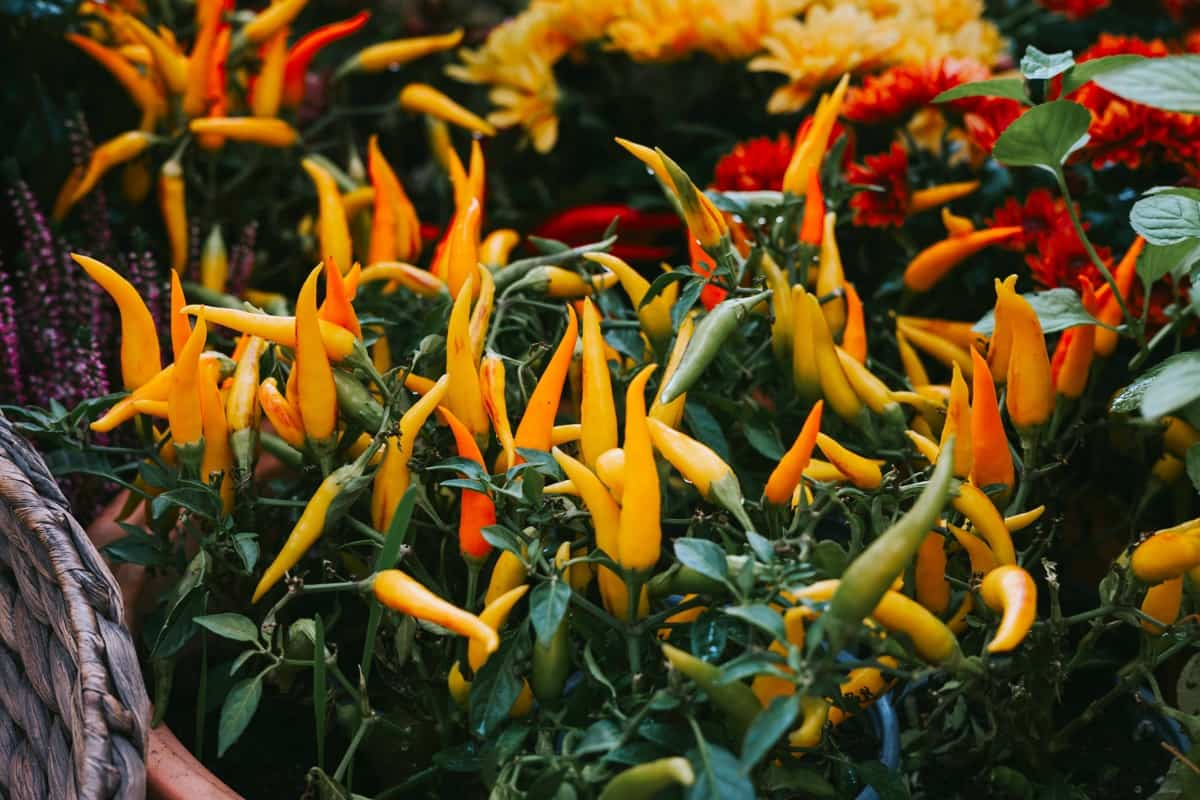
Another important thing to remember is that the soil’s temperature can also affect your Peppers’ heat. If you live in warmer areas, your Peppers will likely be hotter than in a cooler climate. Soil temperature can also affect how much sun or shade your Pepper plants get. If you want your Peppers to be hotter, ensure they get plenty of sunlight. If you want to grow Peppers in hot conditions, you must make sure that you choose a location with plenty of sunlight and warm temperatures.
If you live in an area with cooler temperatures, you can try growing Peppers indoors under grow lights. There are also a few ways that you can make the conditions hot yourself. One way is to use black plastic mulch. This will help trap heat and moisture, which will be great for your Pepper plants. You can also try using row covers or floating row covers. These will help create a mini greenhouse effect around your plants, keeping them nice and warm.
Choose the hottest variety
If you want to add extra spice to your Pepper plants, you can do a few things to make them hotter. You can also try cross-breeding different Peppers to create a new variety that is even hotter than the originals. You need to start with the right variety to get the hottest Peppers. There are many hot Peppers, and some are much hotter than others.
- Cayenne Peppers – These Peppers are typically red, yellow, or orange and pack a serious punch in heat.
- Jalapeno Peppers – These Peppers are usually dark green and have moderate heat. They can be used fresh or canned.
- Habanero Peppers – These Peppers are typically orange or red and are among the hottest. They can be used fresh, dried, or ground into powder form.
In case you missed it: Growing Peppers from Seed to Harvest: For Bell Peppers, Chilli Peppers, Spicy/Hot Peppers, Sweet Peppers, and Jalapeno Peppers
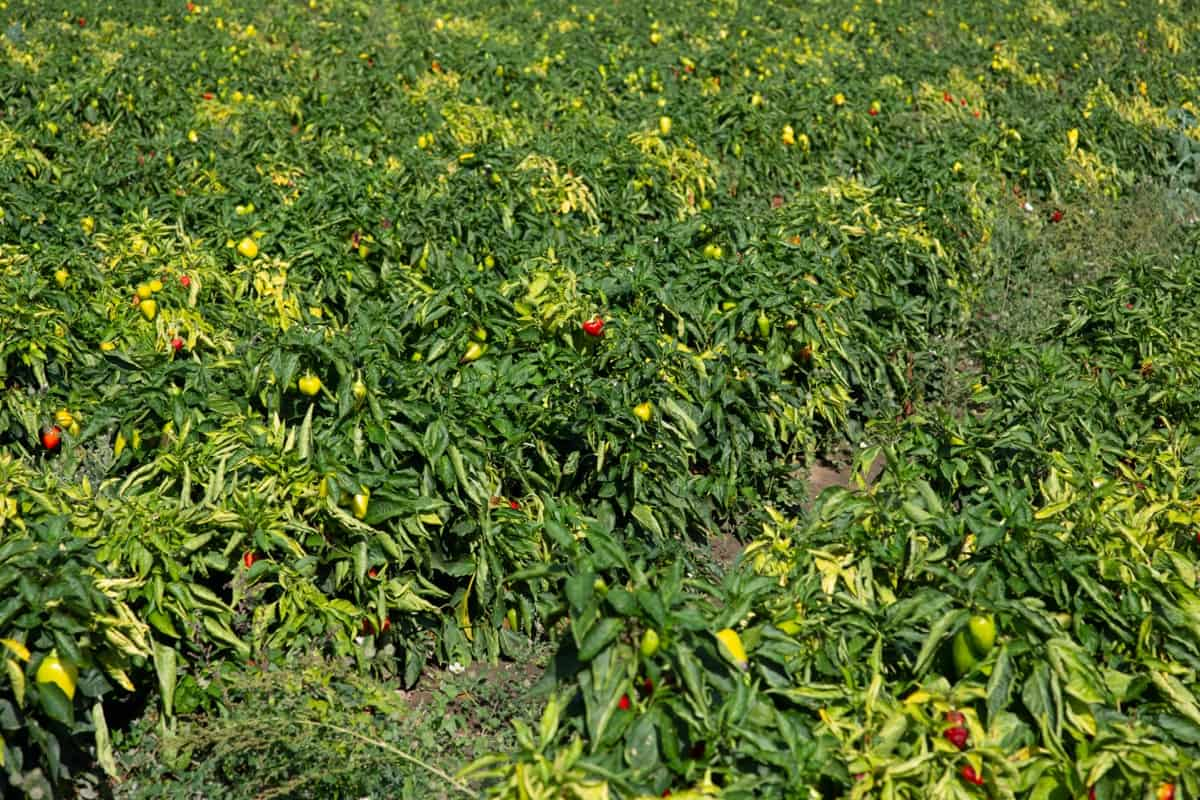
Nitrogen is important
Nitrogen is the primary nutrient that plants need for growth. It is an essential component of chlorophyll, which helps plants convert sunlight into energy. While nitrogen is essential for all plants, it plays a vital role in Pepper plants. Nitrogen is the essential component of chlorophyll, which helps the plant produce food through photosynthesis.
In addition, nitrogen is necessary for developing strong stems and leaves. It is important to know that too much nitrogen in the soil can lead to sweeter, milder Peppers. So, if you want to make your Peppers hotter, it is best not to use too much nitrogen when fertilizing.
Reduce watering
If you want to make your Pepper plants hotter, one of the best things you can do is reduce watering. Over-watering can make Peppers milder, so reducing the water you give your plants will make them spicier. Let the soil dry between waterings, and don’t water the leaves of the plant, only the roots. If you want to make your Pepper plants hotter, one way to do so is to reduce watering. This will stress the plant and cause it to produce more capsaicin, which makes Peppers hot. Be careful not to let the plant completely dry out, as this will kill it.
In case you missed it: Best Season to Grow Bell Pepper/Capsicum at Home in India: in Pots, Terrace, Apartment Balcony, and Backyards
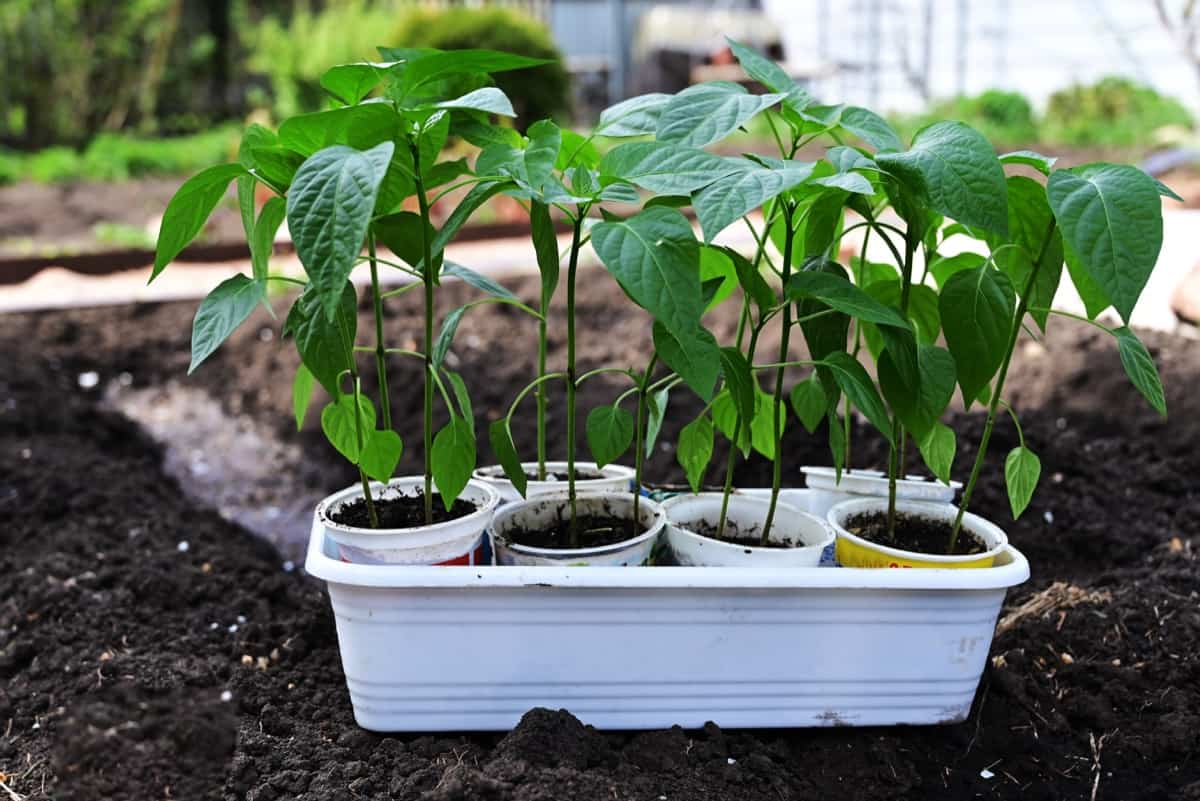
Use Epsom salt
If you want to make your Pepper plants hotter, use Epsom salt. This type of salt is rich in magnesium, which helps to increase the heat in Peppers. You should mix one tablespoon of Epsom salt in one gallon of water and spray it on the leaves of your Pepper plants. Do this once a week, and you should see an increase in the heat of your Peppers within a few weeks. You can add it to the soil before planting or top-dress the plants with it during the growing season. Ensure not to overdo it, as too much magnesium can lead to leaf problems.
Escape from cross-pollination
One way to escape from cross-pollination is to grow your Peppers in isolation. This can be done by growing them in greenhouses or indoors. If you are growing your Peppers outdoors, ensure they are in a location where they will not be exposed to other Pepper plants. Another way to avoid cross-pollination is to hand-pollinate your Pepper plants.
This means that you will need to remove the male flowers from the plant before they can pollinate the female flowers. You can do this manually or with a net. You can grow hybrid Pepper plants if you want a more permanent solution. These plants are bred to be sterile and will not produce any pollen. This means they cannot pollinate other Pepper plants and will not make them hotter.
In case you missed it: How to Prepare the Soil for Pepper/Chili: Best Soil Mix, pH, Compost, and Recipe
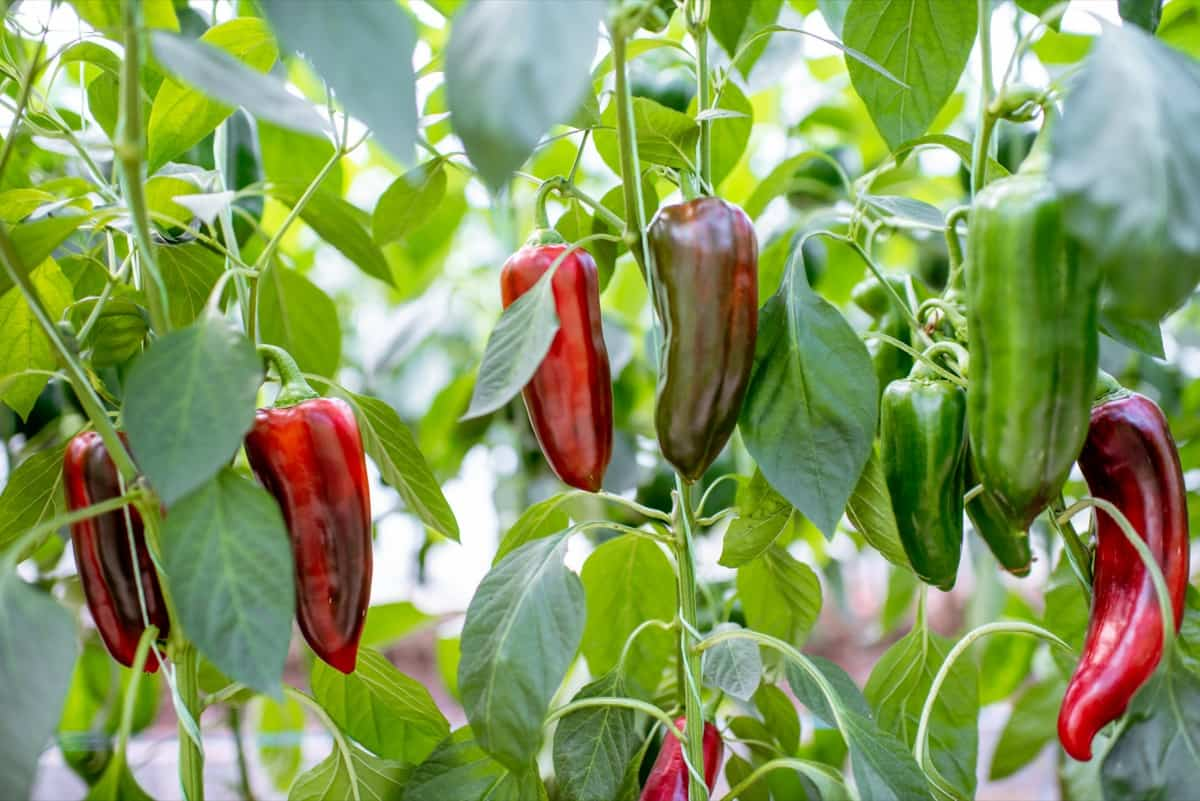
When growing hot Peppers, it is essential to avoid cross-pollination. Cross-pollination can occur when pollen from one plant is transferred to another, resulting in the two plants exchanging genetic material. This can lead to the hotness of the Peppers being reduced. To avoid cross-pollination, grow only one hot Pepper plant at a time or keep them separated by a physical barrier such as a screen or netting.
Let them age on the vine
Let them age on the vine if you want to make your Pepper plants hotter. As Peppers mature, they become hotter. So, if you wait to pick your Peppers until they’re fully ripe, they’ll be spicier than if you picked them early. When making your Pepper plants hotter, one method is to let them age on the vine.
This means allowing the Peppers to stay on the plant longer before picking them. Doing this will cause the Peppers to become hotter as they age and mature. Of course, you’ll need to be careful not to let them get too ripe, or they may start to lose their flavor. But if you want to add extra heat to your Peppers, letting them age on the vine is the best way to do it.
Feed less
It is a common misconception that to make a Pepper plant hotter, you need to feed it more. The opposite is truly feeding a Pepper plant less will make it hotter. This is because when a Pepper plant is stressed, it produces more capsaicin, which makes Peppers hot. So, to make your Pepper plants hotter, cut back on their fertilizer and watering. Overfeeding can make Peppers milder.
In case you missed it: 17 Common Pepper/Chili Plant Problems: How to Fix Them, Solutions, and Treatment
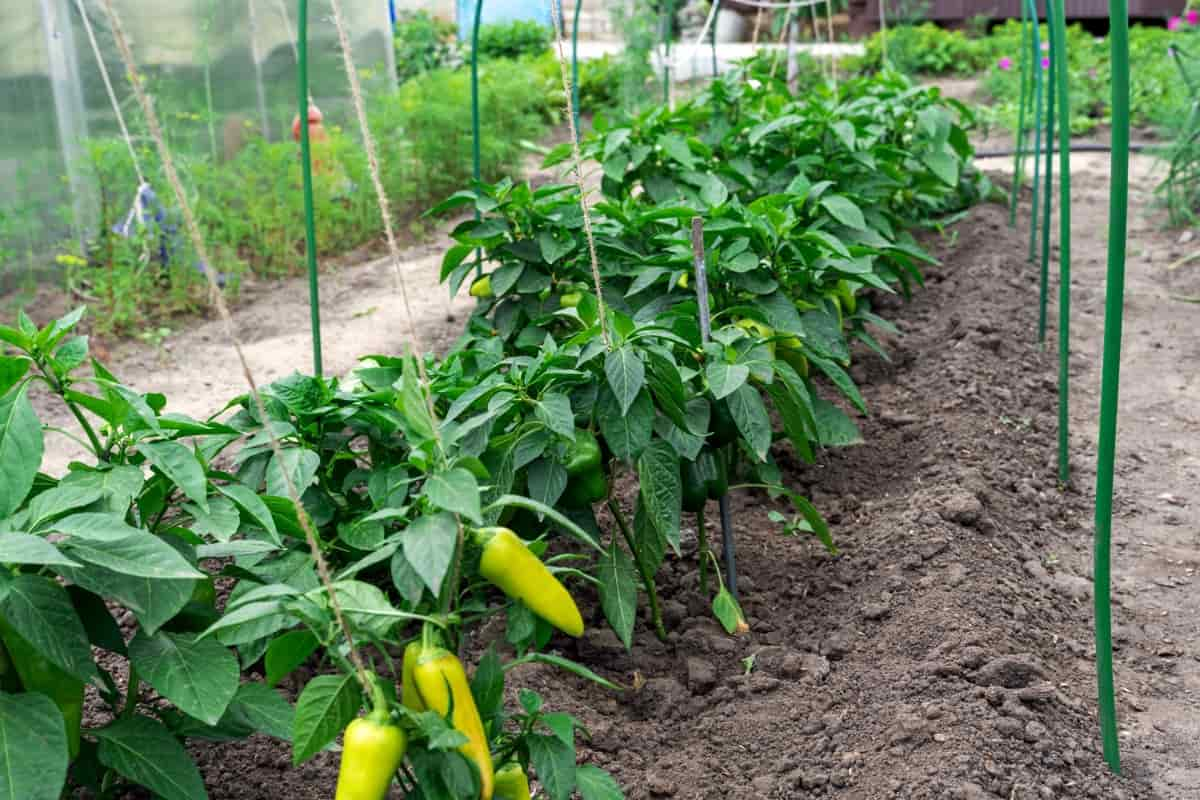
To cut back on feeding, start by using a weaker fertilizer. If using a chemical fertilizer, dilute it according to the package directions. If you’re using organic fertilizer, use less than you normally would. You should also reduce the frequency of fertilizing. Once every two weeks is usually sufficient. Finally, make sure your plants are getting enough water. They need about an inch of water per week from rainfall or irrigation. Too much or too little water can lead to Pepper production problems.
Add sulfur to the planting hole
Sulfur is an important element for plant growth, and it plays an important role in the production of capsaicinoids, the compounds that give Peppers their heat. Adding sulfur to the planting hole can help Pepper plants produce more capsaicinoids, making them hotter. When it comes to making your Pepper plants hotter, one thing you can do is add sulfur to the planting hole.
Sulfur helps lower the soil’s pH, making it more acidic. This makes it easier for the roots to take up nutrients, including capsaicinoids which give Peppers their heat. To add sulfur to the planting hole, mix some powdered sulfur into the soil before planting the Pepper seedlings. You should wear gloves and a mask when handling sulfur, as it can irritate the skin and lungs.
Conclusion
With the right tips, you can make your Pepper plants hot enough to be enjoyed by everyone. Growing hot Peppers can be a fun and rewarding experience. From choosing the right seeds and soil to providing the proper nutrients and care, there’s a lot that goes into making sure your Pepper plants reach their full potential. Whether you’re looking to add some spice to your cooking or enjoy the sight of beautiful plants in your garden, Peppers are sure to please.
In case you missed it: Bell Pepper Gardening For Beginners, How To Start
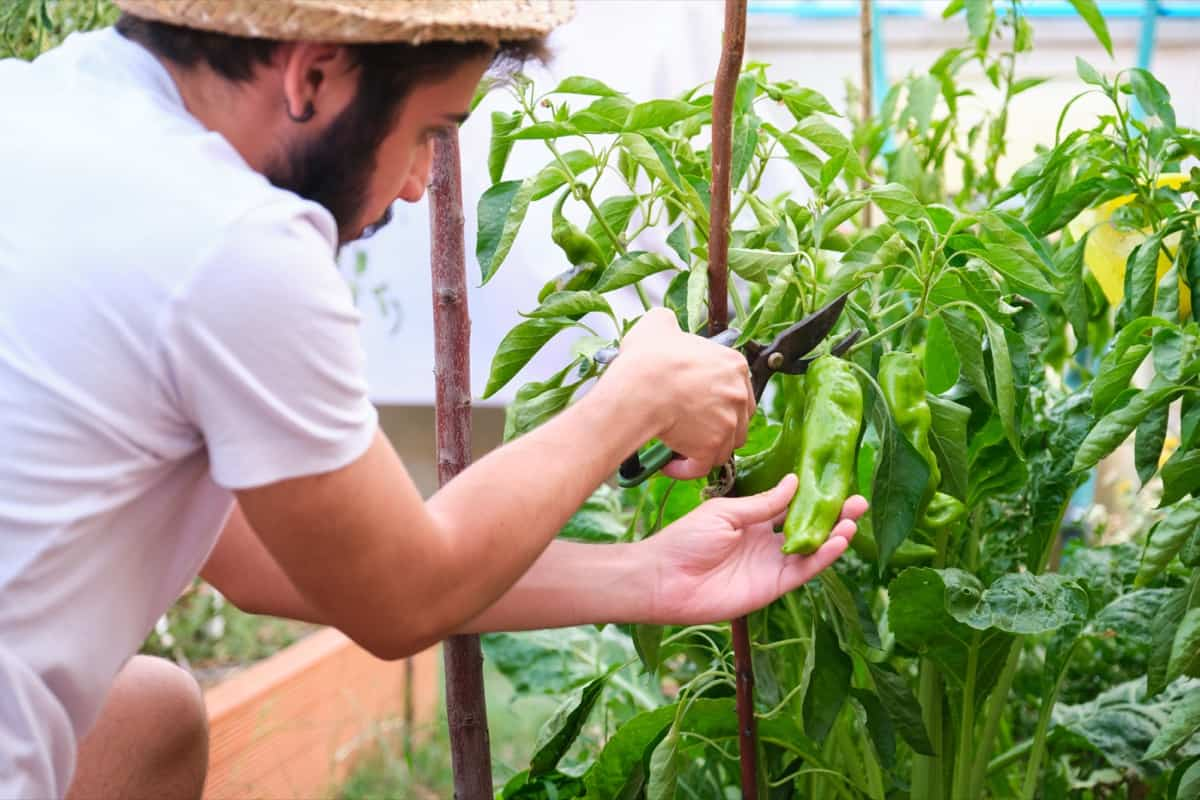
But when it comes to making Pepper plants hotter, there are several things you need to keep in mind. As long as you keep a regular watering schedule and provide the plant with plenty of sunlight, it should produce many spicy Peppers without any problems. Additionally, adding some organic fertilizers such as compost or fish emulsion can help increase the spiciness of your Peppers.
- Growing Gold: Essential Techniques for Planting Pineapples
- How to Make Kalanchoe Plant Bushy: Home Remedies and Solutions
- 11 Reasons Why Your Gardenia is Not Blooming: Home Remedies and Solutions
- Eco Elegance: The Guide to Designing a Drought-Tolerant Landscape
- Gardening on a Slope: Strategies for Hillside Landscaping
- Nourish and Flourish: Top Organic Mulches for Thriving House Plants
- Everything You Want to Know about Indian Mogra Flower: Discover Uses and Growing
- Green Thumb Success: Expert Tips for Cultivating Greenhouse Pumpkins All Year Round
- Maximize Growth & Flavor: The Ultimate Guide to Companion Planting in Herb Gardens
- How to Control Rhododendron Problems Naturally: Home Remedies and Organic Ways to Fix Them
- Natural Magic: The Remarkable Benefits of Cinnamon for Plants
- Best Steps to Revive Dying Tulip with Natural and Organic Treatment
- 10 Reasons Why Your Angel Trumpet is Not Blooming: Remedies and Treatment
- How to Fix Periwinkle Leaf and Flower-Related Problems: Natural Remedies and Solutions
- How to Fix Zinnias Leaf and Flower Problems: Discover Natural and Home Remedies
- Organic Steps to Induce Lemon Tree Flowers: A Comprehensive Guide
- Bloom Booster: Crafting the Perfect Homemade Bougainvillea Fertilizer
- Optimizing Growth: A Guide to Applying NPK Fertilizer for Potted Plants
- 10 Best Homemade Fertilizers for Rubber Plant: DIY Recipes and Application Method
- How to Boost Female Pumpkin Flowers: Effective Steps for More Flowers and High Yields
- Transform Your Indoor Garden: Top Benefits of Pink Salt for Houseplants
- 10 Best Homemade Fertilizers for Peacock Plants (Calathea): Easy DIY Guide
- Unlock Blooms: 9 Reasons Why Your Potted Chrysanthemum is Not Blooming
- 8 Reasons Why Your Potted Hibiscus is Not Blooming: Fix it with Simple Solutions
- Unlock Blooms: 9 Key Reasons Your Potted Frangipani Won’t Flower
- 10 Reasons Why Is My Ice Plant Not Blooming: Remedies and Treatment
- 10 Reasons Why My Potted Hydrangea Not Blooming: Treatment and Remedies
- 10 Reasons Why is My Wisteria Not Blooming: Remedies and Treatment
- 10 Reasons Why is My Goldfish Plant Not Blooming: Remedies and Treatment
- Maximize Your Space: Ultimate Guide to Balcony Gardening with Grow Bags
- 10 Reasons Why Your Iris is Not Blooming: Remedies and Treatment
- 10 Reasons Why Your Anthurium Plant is Not Blooming: Treatment and Remedies
- 10 Reasons Why Your Aquaponic Plants Are Not Flowering: Remedies and Treatment
- 10 Reasons Why Your Agapanthus is Not Flowering: Remedies and Treatment
- Ultimate Guide to Brown Turkey Fig: Steps to Growing Brown Turkey Figs
- How to Grow Acai Berry: Propagation, Planting, and Care